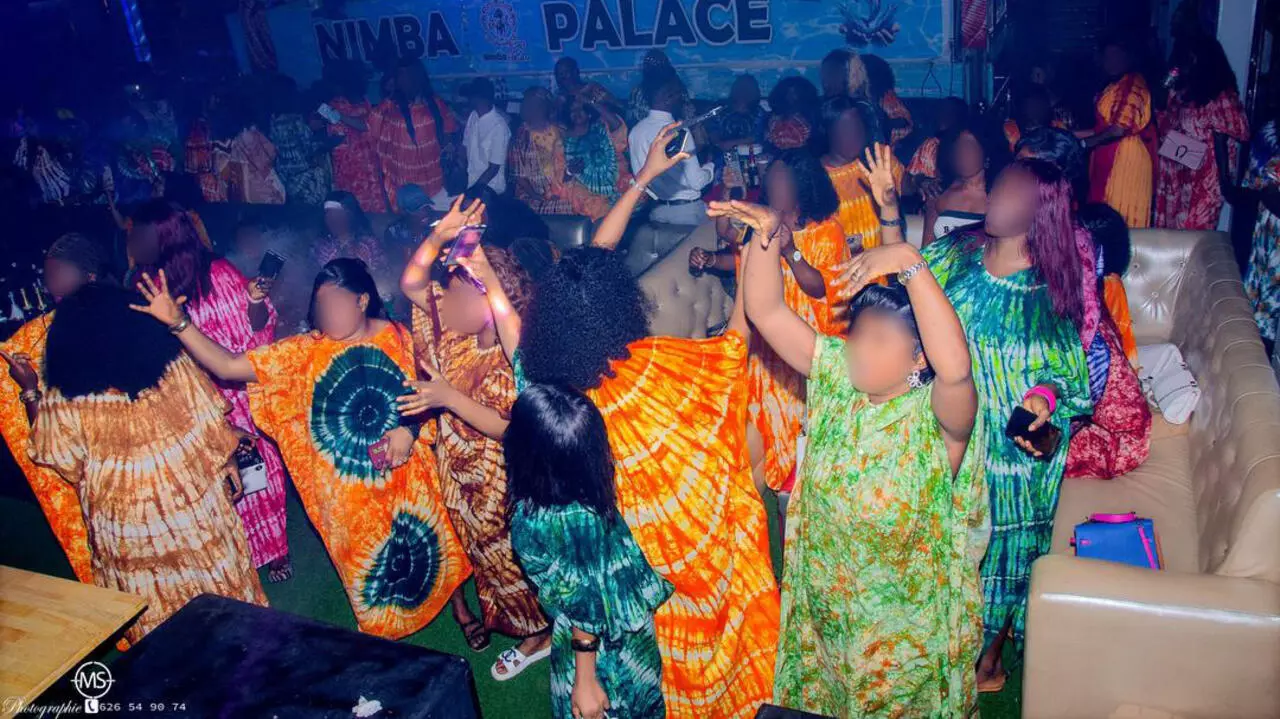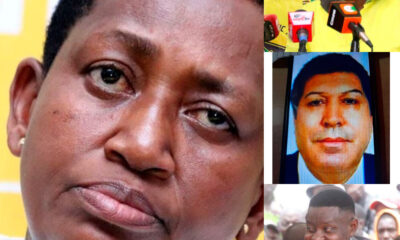Africa
Too Much Twerk: How ‘Dior Parties’ Are Causing a Scandal in West Africa
Specific dance moves broadcast in the clips like twerking, which consists of rhythmically shaking the hips and buttocks, have especially sparked outrage.

Videos of young women dancing in colourful boubou gowns have exploded across social media in West Africa. Dubbed “Dior parties”, the social media trend that originated in Guinea is now stirring controversy. What many see as a joyful revival of African identity and sisterhood has met with fierce backlash from conservative critics and pushed Mali to place a country-wide ban on the celebrations.
The trend spread like wildfire, as did the intractable controversies around it. In just a few months, “Dior parties” have become all the rage on social media. Driven by videos shared widely on TikTok, the trend that originated in Guinea has now taken West Africa by storm.
The clips show groups of young women clad in bright, colourful gowns known as boubous, fired up and dancing to all the latest hits in apartments, nightclubs or restaurants. But these girls’ nights out have met with fierce backlash from conservatives across West Africa. Many young women have faced a barrage of criticism for posting these videos, deemed immoral by critics.
Luxury fashion jumps on boubou trend
Also known as “boubou parties”, the “Dior party” trend refers to the well-known French luxury brand – a symbol of wealth and elegance. The nickname has stuck not only to describe the traditional African gowns, but also the friendly and selective nature of these parties, most often reserved for women.
“Dior parties” and their hype also seem to be riding the wave of boubous coming back into style. Replaced by outfits that were considered more modern for some time, the traditional gown has regained popularity in recent years and is now being proudly worn as a symbol of African cultural identity.
A few years ago, Dior came under fire for using traditional African batik wax printing and tie dye patterns on several garments during a fashion show, sparking a debate on cultural appropriation.
Twerking, a touchy topic
But the parties have recently become a target on social media, with some calling them symbols of “youth depravity”. Specific dance moves broadcast in the clips like twerking, which consists of rhythmically shaking the hips and buttocks, have especially sparked outrage. Alcohol consumption has also furrowed many brows, as its use is still poorly regarded in some West African regions.
In response to the criticism, participants have stepped up to defend the Dior parties, underlying their role as celebrations of sisterhood and African culture.
An organiser quoted anonymously by online media outlet Ledjely recalled the African origins of twerking, saying the move is an “integral part of traditional Guinean dances from its forest regions”.
“If you don’t know how to twerk, you can be considered a bad dancer. For us, it’s a way to have fun,” she added, going on to explain how these parties allow participants to celebrate and dance in a safe environment, without fear of being harassed or sexually assaulted.
Lesbians in the firing line
The most fervent critics of the Dior parties have gone even further, claiming “excessively promiscuous” participants are naked under their boubous and that the celebrations are “lesbian” gatherings. Talking about LGBTQ rights is an especially thorny issue in Guinea, where gay or lesbian displays of affection are illegal and can lead to imprisonment.
Discriminatory attitudes towards LGBTQ people are quite widespread in West Africa. Burkina Faso banned same-sex conduct earlier this month, and Mali passed a law that made homosexuality a crime in December last year.
Singer Marie Fac, who has organised Dior parties, snapped back at these allegations by posting a video on her TikTok account and wrote: “Some swear on their mothers’ lives that I’m a lesbian, to prove what exactly? Please, let’s educate our children.”
Others opt for a more sarcastic tone to defend the parties. “Let’s be honest fellas. Is twerking really the problem, or is it the fact that you weren’t invited to come and grind?” a woman wrote on a Facebook post that has now garnered more than 100 comments.
“Men don’t really understand Dior parties,” says Yamciss, an employee at the Nimba Palace nightclub in Conakry, Guinea, who thinks the controversy around the trend is an “exaggeration”. The 27-year-old organised a boubou party on August 1 and insists that the celebrations went off “without a hitch”.
“It was a huge success, not only for the nightclub but also for the retailers we worked with for the occasion,” he says. Thanks to their popularity, Dior parties have been an important business opportunity for local seamstresses, stylists, hairdressers, retailers and make-up artists.
But it turns out that is not enough to keep them going. Two Guinean municipalities banned Dior parties at the end of August, claiming the “sensual dances” performed “undermine our customs and morals, as well as modesty in public places”.
Neighbouring Mali quickly followed suit. On September 8, the governor of the district of Bamako issued a similar ban on the parties “for public order reasons”, citing practices that were “contrary to public decency”.
A general ban has since been implemented by the Ministry of Justice country-wide.
Kenya Insights allows guest blogging, if you want to be published on Kenya’s most authoritative and accurate blog, have an expose, news TIPS, story angles, human interest stories, drop us an email on [email protected] or via Telegram
-

 Grapevine2 weeks ago
Grapevine2 weeks agoA UN Director Based in Nairobi Was Deep in an Intimate Friendship With Epstein — He Even Sent Her a Sex Toy
-

 Development4 days ago
Development4 days agoKenya Strips Dutch Climate Body of Diplomatic Immunity Amid Donor Fraud Scandal and Allegations of Executive Capture
-

 Investigations1 week ago
Investigations1 week agoHow Mexico Drug Lord’s Girlfriend Gave Him Away
-

 Business2 weeks ago
Business2 weeks agoSafaricom Faces Avalanche of Lawsuits Over Data Privacy as Acquitted Student Demands Sh200mn Compensation in 48 Hours
-

 Investigations2 weeks ago
Investigations2 weeks agoHow Close Ruto Allies Make Billions From Affordable Housing Deals
-

 Entertainment2 weeks ago
Entertainment2 weeks agoKRA Comes for Kenyan Prince After He Casually Counted Millions on Camera
-

 Business1 week ago
Business1 week agoAmerican Investor Claims He Was Scammed Sh225 Million in 88 Nairobi Real Estate Deal
-

 Investigations1 week ago
Investigations1 week agoTalanta Stadium Construction Cost Inflated By Sh11 Billion, Audit Reveals



















